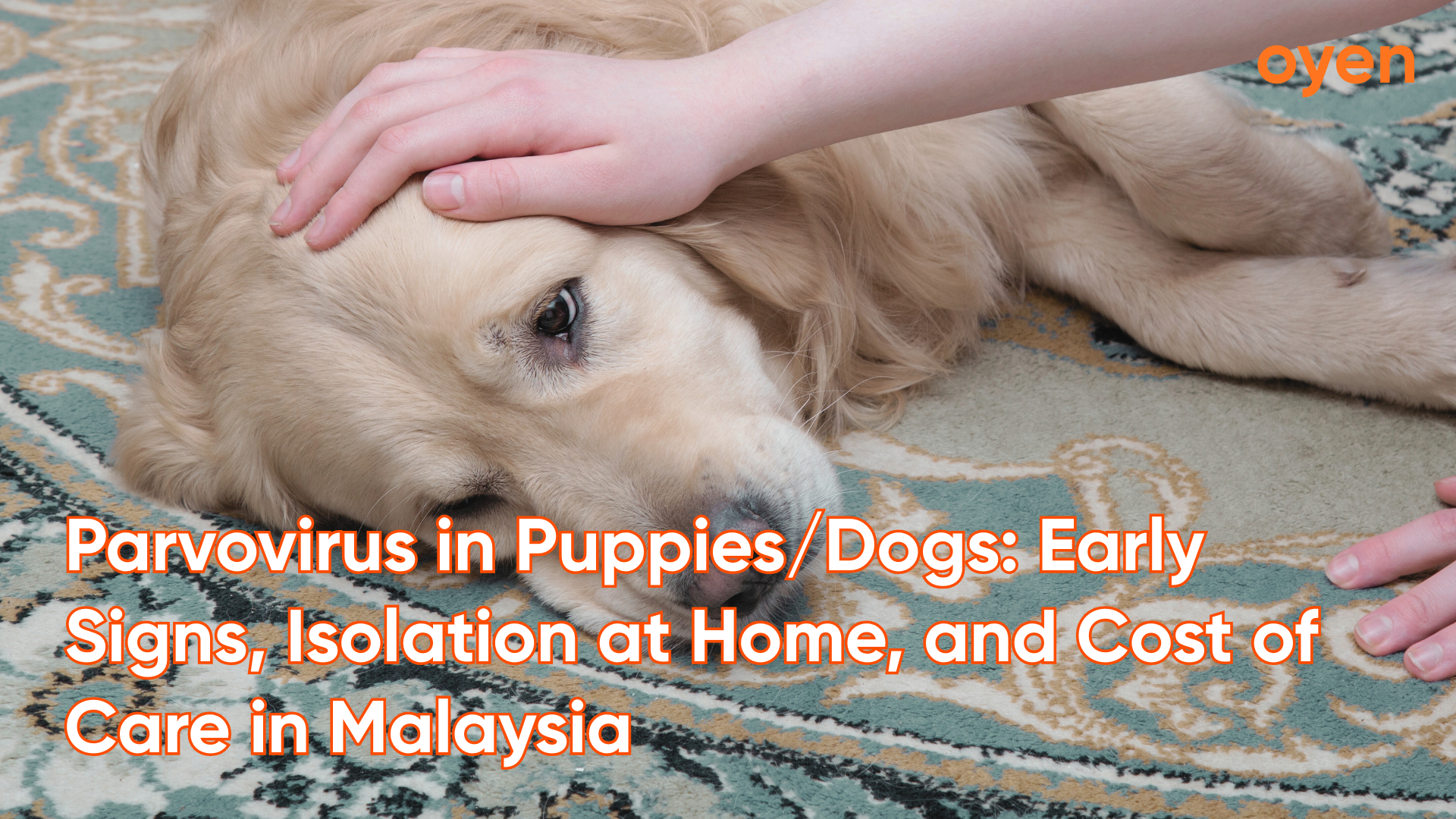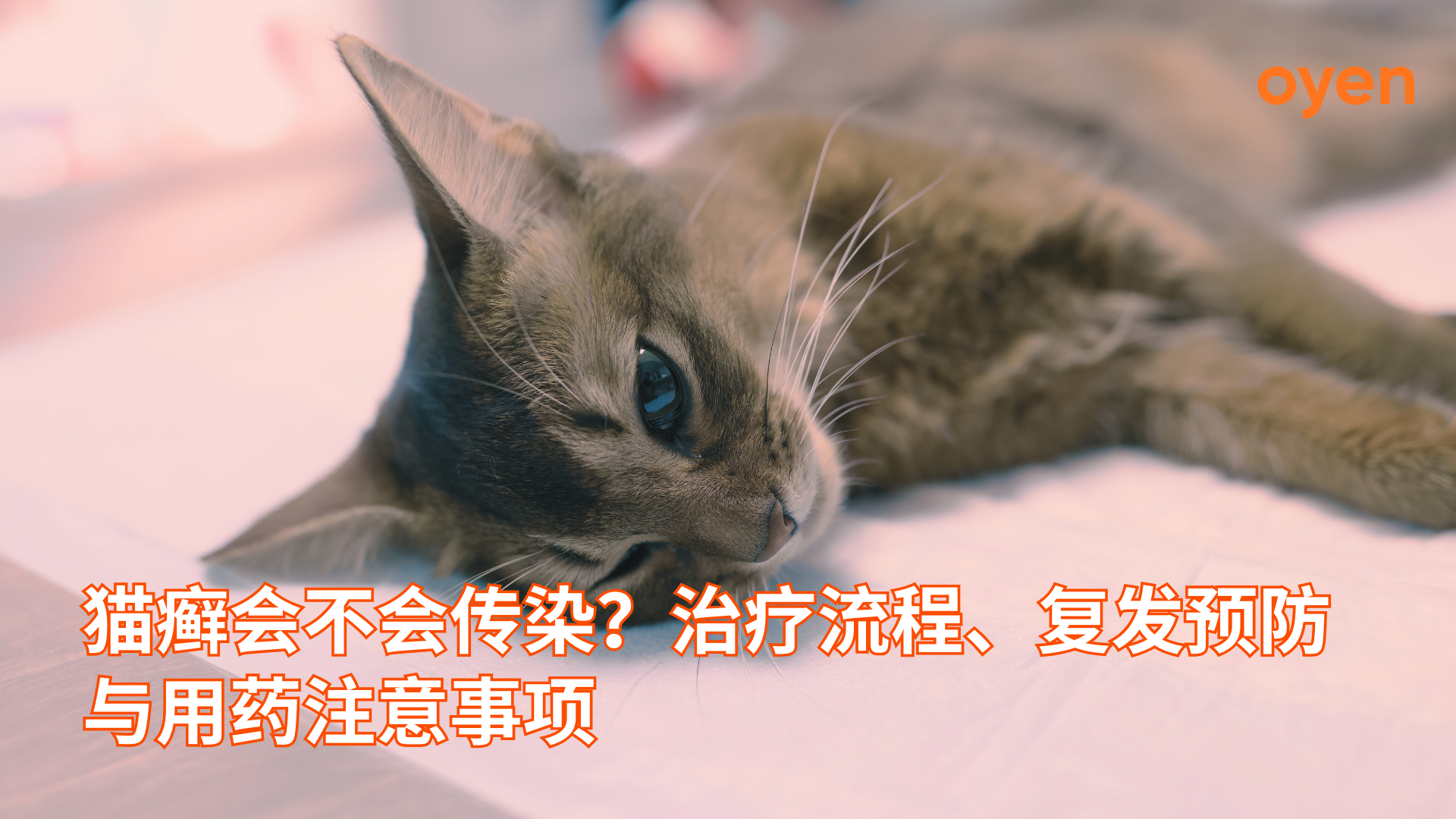Picture this - you're walking home and spot a stray kitten on the road. You bring it home and try to get it to drink the milk from your fridge, which is most probably cow or goat's milk.
After, you see your kitten extremely lethargic and having diarrhea. What happened? Wasn't the milk supposed to help?
It may come as a shock, but kittens can only drink milk from their mothers or milk specifically made for kittens.
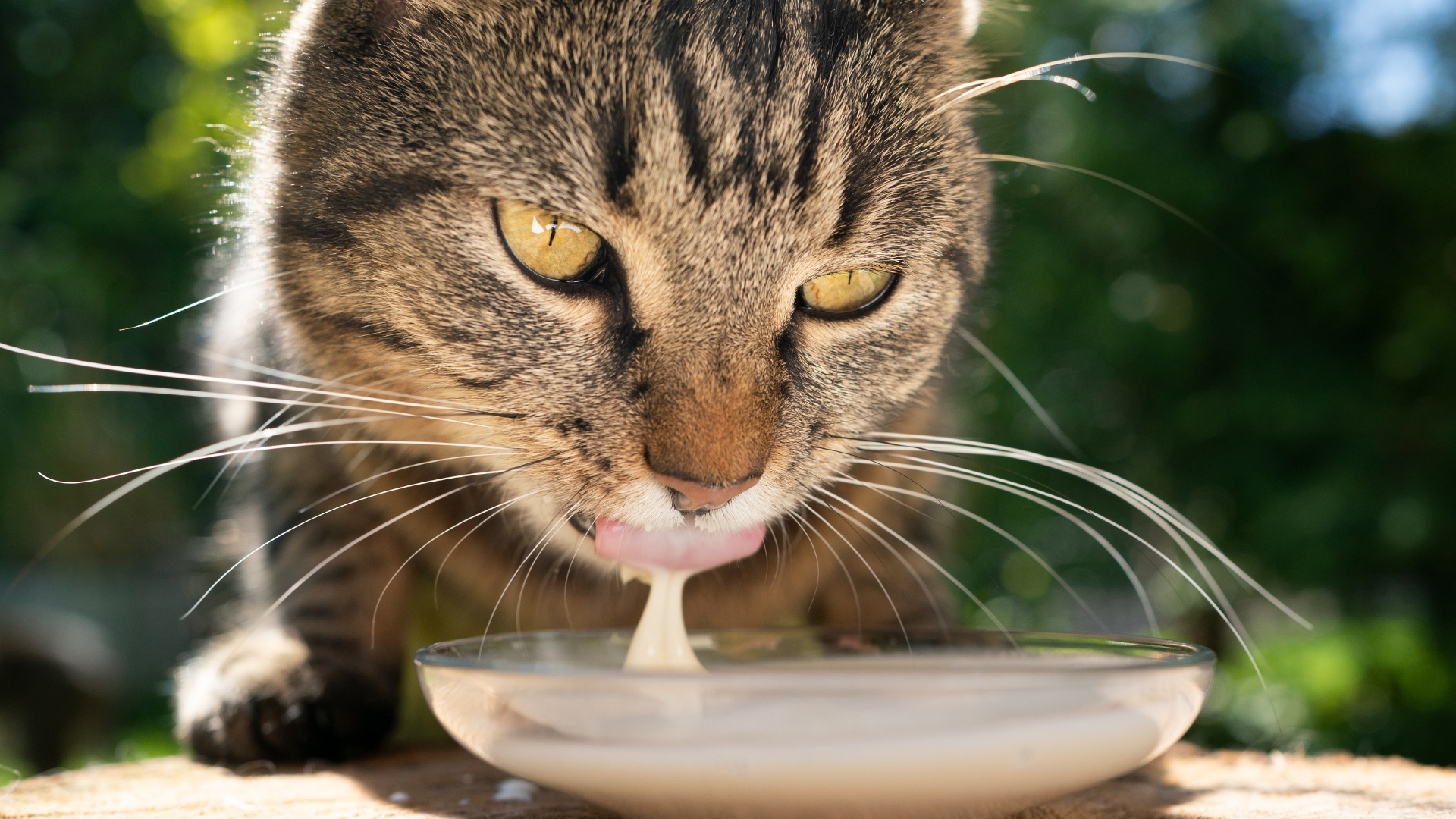
Why can't kittens drink milk from other species (e.g. cows and goats)?
Typically a kitten has to drink milk from its mother for the first 4-5 weeks before its mother weans them. If you have to hand-rear a kitten, you can only give it kitten milk formula as it contains little to no lactose and has the nutrients that kittens need to stay Healthy and active.
Anything else will only cause severe gastrointestinal issues for your feline as they don't have the proper enzymes to digest the milk.
Can kittens drink nut milk?
Almond milk and soy milk are great for humans who are lactose intolerant. However, kittens have extremely sensitive stomachs. The added sugar and lack of proper nutrients in nut milk will cause dehydration and malnourishment for kittens.
When should I introduce wet food and water for kittens?
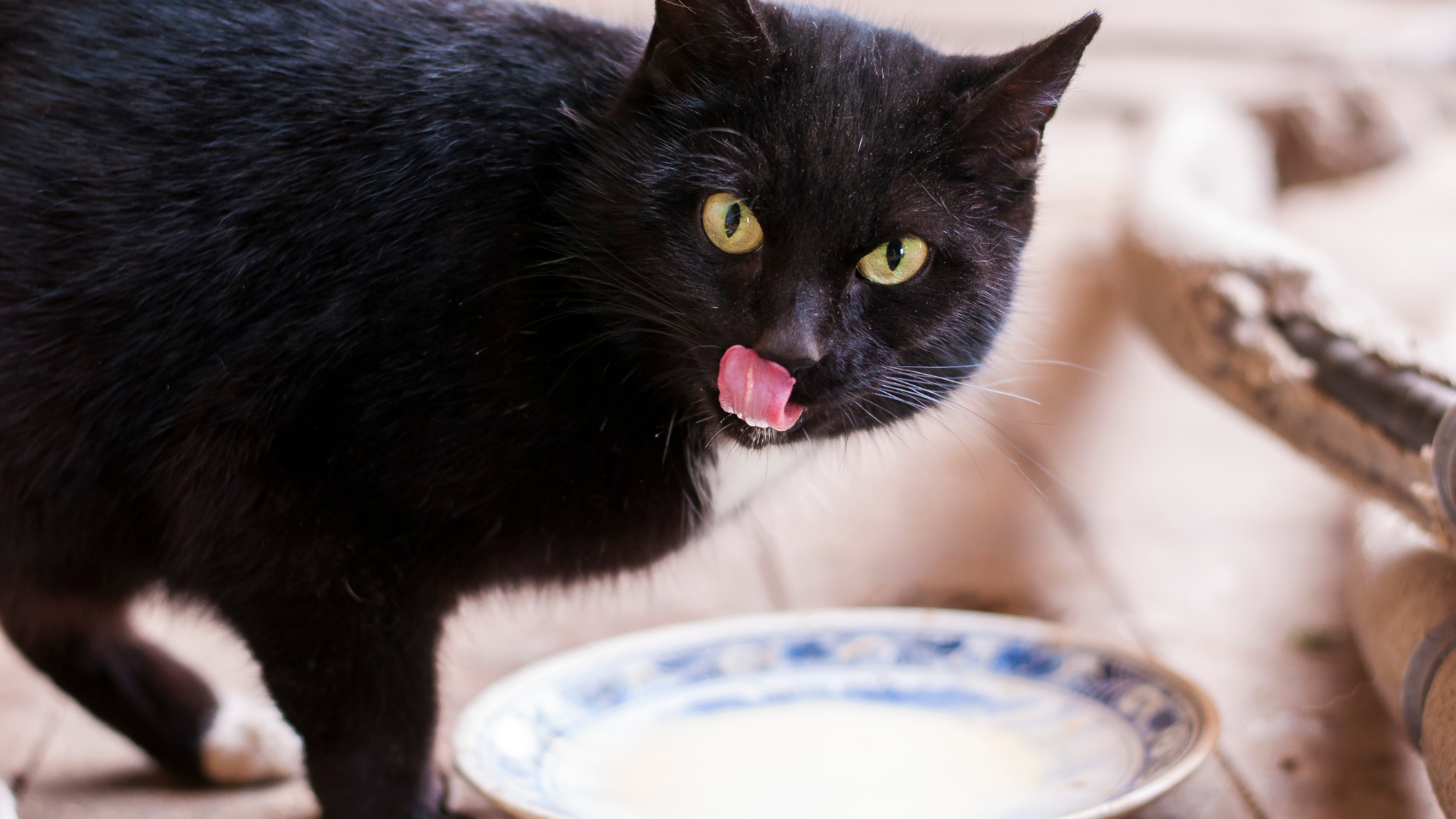
As a kitten starts to grow, less lactase is produced, resulting in potentially increased digestive complications when milk is drunk.
Therefore, once the kitten gets to its 6th week or when its teeth start showing, slowly begin incorporating wet food with kitten formula and gradually decrease the formula amount day by day.
By doing so, you will allow them to adjust their palates to the wet food and stop Milk dependency. At the same time, you should also provide them with fresh water.
Where to buy kitten milk in Malaysia?
Lucky for us in Malaysia, kitten formulas are widely sold in most pet stores. With hundreds of choices to choose from, here are the best kitten milk we recommend:
1. PetAg: KMR Kitten Milk Replacer (RM 32 for 325ml)
This milk substitute is suitable for newborn to six-week-old kittens. It is recommended for kittens who must be hand-reared.
It contains all the vitamins and minerals required for proper development and growth. It is designed to provide a caloric pattern similar to their mother's milk in carbohydrates, fat and protein.
Its ready-to-feed and easy-to-digest formula make it an excellent and convenient choice for all kitten owners.
2. Neu Zea: Milk Replacer for Puppy & Kitten (RM 22.80 for 250g)
Neu Zea is a milk replacer for orphaned puppies and kittens and those who do not receive enough milk from their mother.
It manages to find the perfect balance between low lactose and nutrient composition to meet the nutritional needs of young and active animals.
It provides all of the protein, fats, carbohydrates, vitamins, minerals, and amino acids that puppies and kittens require for proper growth.

3. Zeal: Lactose-Free Pet Milk (RM 20.70 for 1 Litre)
Adult dogs and puppies and adult cats and kittens can benefit from Zeal® Lactose-Free pet milk. It is made from fresh New Zealand whole cows' milk, and it only has 0.5% lactose, making it easy for pets to digest while retaining all of the natural goodness and taste.
Grass-fed cow milk from New Zealand is a good source of calcium, pantothenic acid, selenium, zinc, biotin, protein, vitamin A, and vitamin B12. The quality is directly related to year-round grazing on green grass, and the milk is much richer in nutritional values when compared to milk from grain-fed cows.
4. PetAg: PetLac Kitten Milk Replacement Powder for Kitten & Cat (RM 69 for 300g)
PetLac Kitten Milk Replacement Powder is an excellent source of nutrition for orphaned, rejected, nursing, or weaning kittens. It is also a good source of vitamins, minerals, and amino acids for kitten growth and development. The milk powder can also supplement the diet of thin or elderly cats.
While it is more expensive than the other options, the powder can last much longer.
How to make kitten milk? (If I can’t find one)
If you're not able to get your hands on some kitten formula, here's what you need to make an all-natural formula with typical kitchen ingredients:
- 4 cups of whole goat's milk
- 1 teaspoon corn syrup
- 1 tablespoon nonfat plain yoghurt (goat's milk preferred)
- 1 egg yolk
- Any unflavored gelatin:
a. Newborn to 1 week — 1 sachet of gelatin
b. 2nd week — 1 ½ to 2 sachets of gelatin
c. 3rd week — 2 ½ to 3 sachets of gelatin
d. 4th week — 4 sachets of gelatin
The opened powder can be refrigerated for up to 3 months or frozen for 6 months to maintain freshness.
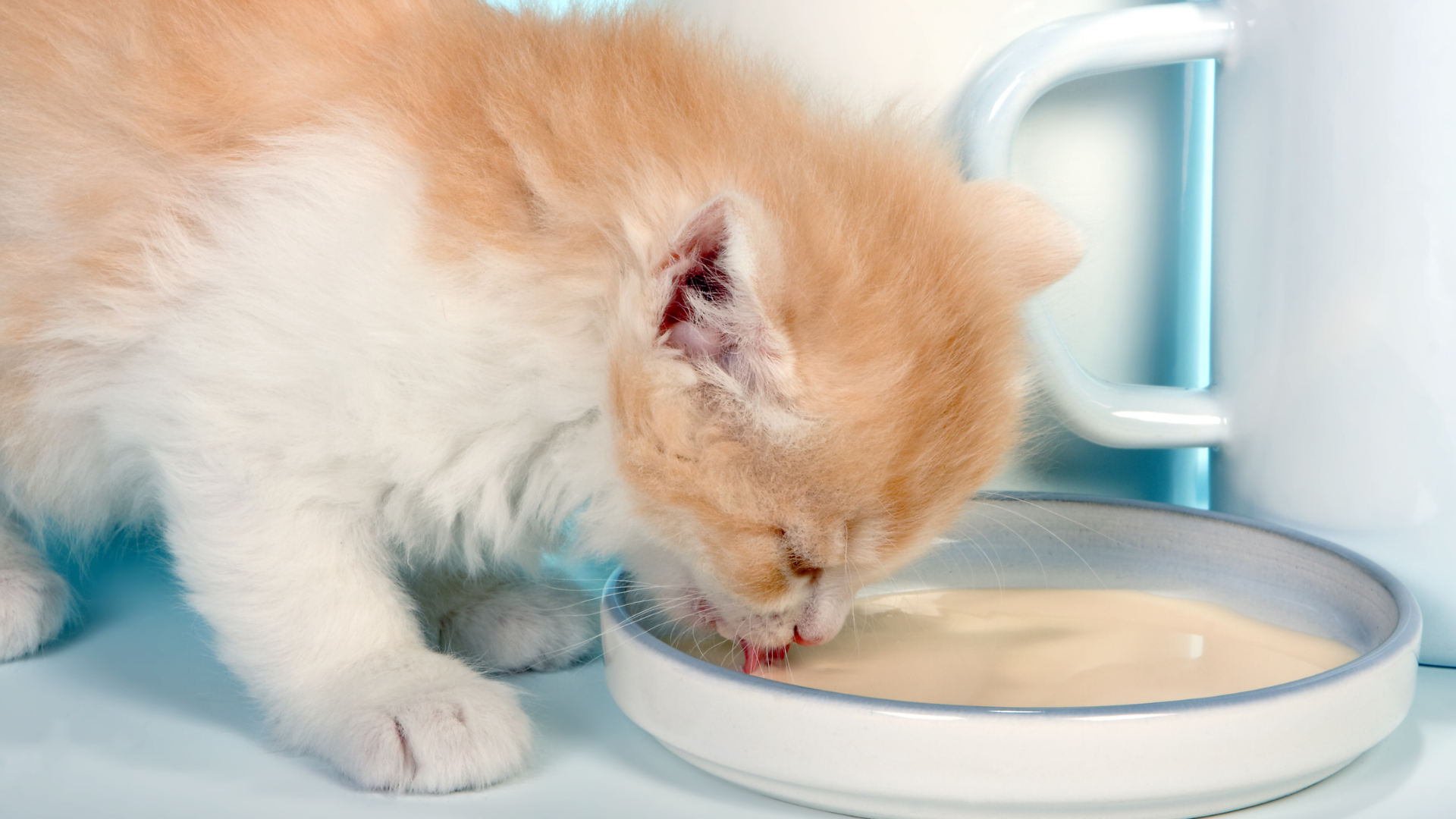
Combine goat's milk and gelatin in specified amounts in a saucepan, depending on the kitten's age. Heat the goat's milk/gelatin mixture until the gelatin is completely dissolved. Turn off the heat. Refrigerate after combining the remaining ingredients.
It will keep for up to a week. Heat the formula until it is nearly warm, then check the temperature and test a few drops of milk on your wrist first. It should be slightly warm. Do not use a microwave. If it passes the skin temperature test, you are now ready to feed it to your kitten.
Conclusion
If you accidentally gave your kitten cow/goat milk, keep an eye on them for 8 to 12 hours. Bring them to your nearest veterinarian if they exhibit symptoms of an upset stomach, such as vomiting or diarrhea. Dehydration caused by diarrhea can be fatal to a kitten in severe cases.
Once your kitten has grown into an adult cat, water will suffice to keep them hydrated. They no longer require the nutrients and calories that milk provides.












